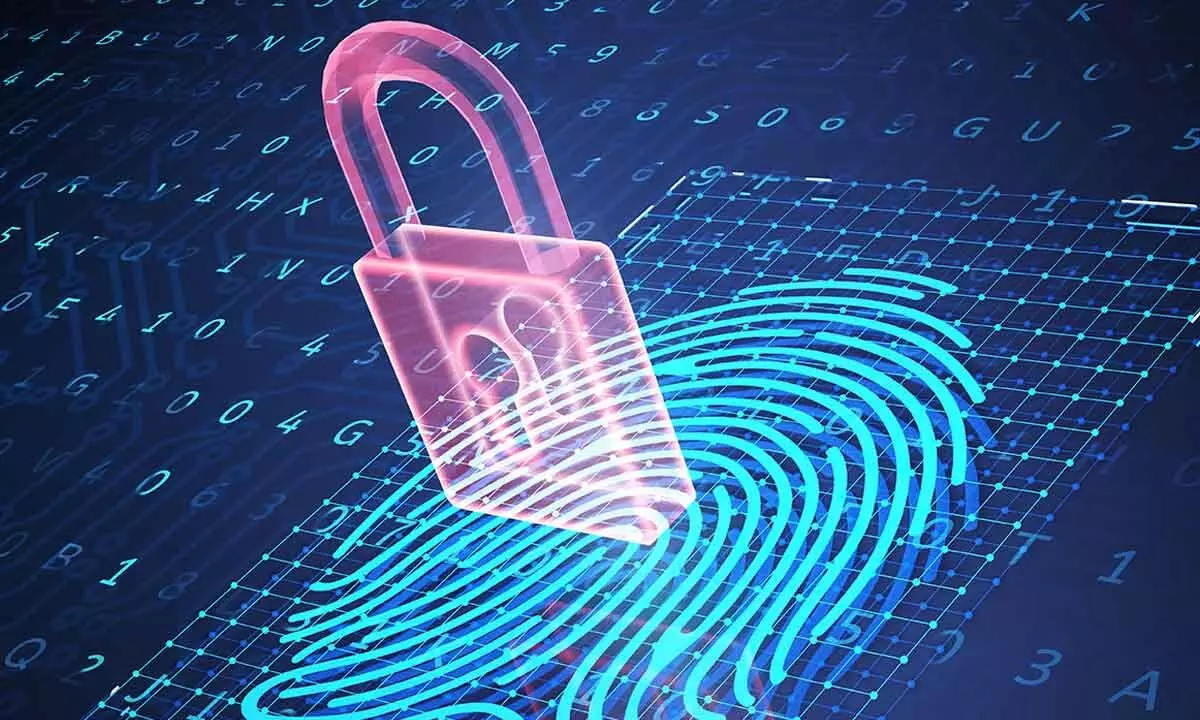Demand for biometric authentication on the rise
Biometrics has been popularly used in the security industry even before the world's pandemic. But now, with the demand for secure contactless identification, the use of biometric solutions has skyrocketed
image for illustrative purpose

With close to 8 billion people on the planet, and more than half of them using the internet, personal identification is one of our most significant technological challenges. With conversations around security and privacy rising exponentially in the digital world, a security system devoid of flaws is hard to find. However, the most secure way, as of today, of ascertaining an individual's identity involves the usage of biometrics - physical markers such as fingerprints, facial structure, retinal scans, and voice recognition; and behavioural identifiers such as device location, how a device is held, finger movement and gestures. Although there are some possible security issues with biometric technology, its use is still expanding because of its simplicity and ease of deployment.
Talking to Bizz Buzz, Sambit Bakshi, Senior IEEE Member, says, “Biometric technology has indeed become a key player in the field of security, especially when it comes to authentication and identity verification.”
In India, several industry players are currently leading the way in this field. Here are some of the key players and some comparative numbers.
Morpho (Safran Identity & Security): Morpho is one of the leading biometric technology providers in India, with a focus on fingerprint recognition and facial recognition systems. The company has deployed its solutions in various sectors, including law enforcement, banking, and government agencies. According to a report by MarketsandMarkets, the fingerprint recognition market in India is expected to reach $4.4 billion by 2024, with Morpho being a key player in this space.
IDEMIA: IDEMIA is another major player in the Indian biometric technology market, offering a range of solutions such as fingerprint, facial, and iris recognition systems. The company has collaborated with several government agencies and private organizations in India to provide secure identity verification solutions. According to a report by Research and Markets, the Indian biometrics market is expected to grow at a CAGR of around 16 per cent between 2020 and 2025, with IDEMIA being one of the key players.
NEC Corporation: NEC Corporation is a global leader in biometric technology, providing solutions such as fingerprint, facial, and iris recognition systems. In India, the company has partnered with various organizations to provide advanced security solutions, including law enforcement agencies, airports, and financial institutions. According to a report by Allied Market Research, the facial recognition market in India is expected to grow at a CAGR of 20.4 per cent between 2020 and 2027, with NEC Corporation being one of the key players in this space.
ZKTeco: ZKTeco is a Chinese biometric technology provider that has made significant inroads in the Indian market. The company offers a range of solutions such as fingerprint and facial recognition systems, and has collaborated with various organizations in India to provide advanced security solutions. According to a report by MarketsandMarkets, the Indian biometrics market is expected to grow at a CAGR of 15.5 per cent between 2020 and 2025, with ZKTeco being one of the key players.
Overall, the biometric technology market in India is expected to witness significant growth in the coming years, with fingerprint and facial recognition systems being the most widely used solutions. As more organizations adopt biometric technology for secure identity verification, the demand for advanced solutions is expected to grow, creating new opportunities for industry players.
Suggesting the way ahead, he said that India has already started implementing biometric technology in various sectors, including Aadhaar for identity verification, biometric attendance systems in government offices, and biometric payment systems. In the future, we can expect to see increased usage of biometrics in areas such as border control, law enforcement, and financial services. Additionally, advancements in biometric technology such as facial recognition and behavioural biometrics are expected to further enhance security measures in India.
Biometrics has been popularly used in the security industry even before the world's pandemic. But now, with the demand for secure contactless identification, the use of biometric solutions has skyrocketed. Today, consumers are more conscious of relying on touch-based security systems owing to the fear of touching contaminated surfaces. Therefore, contactless biometric solutions, including face recognition, iris, or retinal scanning, offering highly accurate identification and measurement, are prominent in ensuring security.
As biometric technology advances, biometric authentication systems are now on the rise. Companies are using new and innovative solutions, making these highly appealing to businesses. It improves operational efficiency and resource-consuming operational tasks, which usually result in high investments of time and expenditure. Using biometrics is also a hassle-free way of authentication as it involves something that people are and not what they have to remember, making it a fast, convenient, and simple user experience. Enhanced security is the need of the hour. By using conventional authentication methods such as passwords, the risk involved is much greater for hacking, misplacement, etc., leading to significant security concerns and high costs to the company.
While security is among the biggest concerns for consumers surrounding biometrics, an appropriately deployed biometric authentication solution has proven to enhance personal privacy. Biometric data, when encrypted and stored securely using techniques like cryptography or a distributed data model, reduces the risk of a user's biometric data being compromised in a data breach- eliminating the risk of a data breach itself.
These are just the tip of the iceberg of the multiple advantages that biometric-based security provides today. Using biometrics for multi-factor authentication rather than complicated combinations of passwords and tokens can help optimize convenience and safety for everyone involved. Companies can prepare the infrastructure for their identity and access management for future-proofing security and privacy regulation. Ultimately, however, the proof lies in new-age companies' advances in their security strategies by incorporating biometric authentication. And the technologies behind this are on the rise, improving security and addressing former weak spots.

